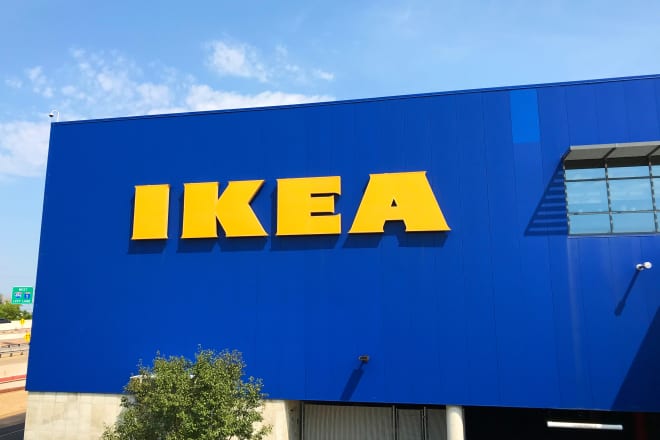Meet Bob Steel, the Perella investment banker and former Treasury undersecretary who is advising Larry Fink on his alternative investment buying spree
Perella Weinberg's Bob Steel talks about his history with Larry Fink, BlackRock's expansion into alternative assets, and why he will never retire.
Courtesy of Perella Weinberg
- Robert Steel has been a Goldman partner, undersecretary of the US Treasury, and CEO of two banks.
- As vice chair of Perella Weinberg, he's been advising BlackRock on its alternative-asset expansion.
- He talked to BI about his career, his friendship with Larry Fink, and why he doesn't want to retire.
Robert Steel has had the kind of career most people on Wall Street only dream about.
He spent 30 years at powerhouse investment bank Goldman Sachs, where he rose to partner before "retiring" in 2004. In 2006, he became undersecretary of the US Treasury under President George W. Bush and helped prepare the government's response to what became the biggest financial crisis since the Great Depression. He stepped in as CEO of troubled bank Wachovia during the darkest days of that crisis and later served as Deputy Mayor for economic development of New York City under Mayor Michael Bloomberg.
Since 2014, Steel has helped lead boutique investment bank Perella Weinberg, first as CEO and now as vice chairman. Last year, he helped the firm score a role as a top advisor to BlackRock, the world's largest asset manager, in its expansion into alternative assets.
Specifically, Steel worked with longtime friend Larry Fink on two recent acquisitions tied to BlackRock's expansion into investments traditionally reserved for the uberwealthy: Its $12.5 billion purchase of private-equity firm Global Infrastructure Partners (GIP) and its $12 billion purchase of private-credit giant HPS Investment Partners (HPS).
Steel said BlackRock's latest acquisitions were driven by its leadership's conviction that time was of the essence.
"I think the BlackRock people had what I would describe as a pretty courageous point of view that the opportunity was, for now, significant," he said, adding: "So they'd rather not take the time to build. They'd rather buy and be a strong participant right away."
The spate of deals, including a $3.2-billion acquisition of data provider Preqin, has led some on Wall Street to describe Blackrock's ambitions as potentially game-changing. Marc Rowan, the CEO of private-equity giant Apollo Global Management, recently pointed to the deals as evidence of a new investment paradigm that will meld the realms of publicly traded stocks and bonds with so-called private investments.
"Our industry grew up where I think people thought private was risky and public was safe," Rowan said on a quarterly earnings call. BlackRock, he added, "has delivered a wakeup call to their entire peer set that private is going to be an important part of client solutions going forward."
Business Insider sat down with Steel to talk about his long and storied career, his recent work helping BlackRock expand into alternative assets, his advice to the next generation of bankers, and why retirement is not on his to-do list. Associated Press
Friends for 20 years
Steel and Larry Fink, BlackRock's founder and CEO, have been friends for about 20 years. They first got to know each other around 2006, Steel said, while he was Treasury undersecretary in Washington.
They've supported some of the same causes over the years, including as cosigners of a public letter in support of Mayor Adams' public safety and crime reduction efforts in 2022. They're also both on the executive committee of the Partnership for New York City, a nonprofit that seeks to maintain the city's position as an economic and cultural hub.
Steel said he got involved in Blackrock's expansion when Fink invited him and his team to assist with a non-alts project that "didn't come to fruition," without saying what it was.
Steel and Perella soon became part of the team Fink relied on for advice about expanding into alternative assets.
"When he was thinking about people to help with these transactions and give him advice, he thought of me and our firm," Steel said.
Given Steel's long history with Wall Street, he ended up knowing people on both sides of the transactions. HPS was co-founded by Scott Kapnick, Goldman Sachs' former head of investment banking, while GIP's chairman, Adebayo Ogunlesi, was previously a Goldman board member.
"This was a case where I knew the people in BlackRock, I knew the people at GIP, and I knew the people at HPS," he told BI. "So I was involved intensely all the way through."
In describing his role in the deals, he said: "I wasn't writing documents and arguing with lawyers, but I was basically trying to provide momentum to the transaction and to understand the pros and cons and the challenges. And I think I was pretty central to that."
A BlackRock spokesman confirmed Perella's role in the HPS and GIP acquisitions and declined to comment on whether the firm plans to buy more companies in a space that Fink has called "critical" to the firm's growth.
"Private market assets are an increasingly vital part of capital markets," Fink said in the company's fourth-quarter earnings call in January. "And blending both public and private markets will be critical to fully capturing growth opportunities." Gary Hershorn/Getty Images
Teamwork is a key to a satisfying career
Steel said he came from "a very middle-class background" in Durham, North Carolina, with no connections to Wall Street. As a student at nearby Duke University, he had little interest in finance.
"I steered away from math and science and quantitative things in undergraduate school," said Steel, who majored in history and political science.
Eventually, that changed. He started in institutional sales at Goldman Sachs in 1976 (and remedied his quantitative knowledge by enrolling in the University of Chicago's nighttime MBA program a few years later). Ever since, Steel said, the biggest theme of his career has been collaboration and teamwork.
He pointed to the late 1980s, when he and his team at Goldman launched an ECM division in Europe, as an example.
"The idea of setting strategy for equities and then finding the right people to help lead and execute that was pretty extraordinary," he said. "Goldman Sachs was not very well known in the continent, and we built businesses and built a brand, and I think were pretty successful."
Steel was soon made a Goldman partner, and about six years later, he moved back to New York to co-lead the US Equities Division.
"I was lucky enough to be in a place where the firm was growing and creating new opportunities where I don't think I had one job for 30 years — I think I had half a dozen jobs for five years," he said. Momo Takahashi / Business Insider
Lessons from high-pressure public roles
While Goldman taught Steel teamwork, Washington DC taught him about working under fire.
"You're doing a lot of things for the first time and you don't really know what's going to work, what's not going to work," he said. "So trying to figure that out so you can hopefully prevent something like a mean-spirited recession is a lot of responsibility, and so that was a pretty challenging time."
Moving from the private to the public sector also required adjustments in other ways. He explained that authority in the corporate world is clearly assigned, ending with the CEO. In government, authority is shared due to checks and balances.
"When you're solving the same puzzles in the public sector, that success generally comes more slowly and takes more time and often requires a bit of compromise — different than the corporate world," he said.
Steel was CEO of Perella between 2014 and 2019, and the firm worked on some notable transactions during that time, including AT&T's $108.7 billion purchase of Time Warner in 2016 and iHeartMedia's $16 billion bankruptcy restructuring in 2019.
As vice chairman, Steel is part of Perella's board of directors and helps with the strategic direction of the firm along with Chairman Peter Weinberg, a founding partner, and Andrew Bednar, who took over the CEO role from Weinberg in 2002. Thomson Reuters
Words of wisdom for young Wall Street
Although Steel, 73, has certainly earned the right to retire, he told BI he has zero interest in spending his days on a golf course or lounging at a beach.
"I'll take time away over the holidays, but the idea of doing nothing seems pretty uninteresting," he said. "I think the goal is to wear out, not rust out."
"I have friends that are really happy at a different rhythm, and I have no judgments," he said. "But it wouldn't be for me."
Steel, however, appreciates the flexibility the pandemic has introduced to the corporate world, including banking. Early on in his career, he said, the pressure behind constant face time was, at times, overkill.
"I think 'presentism' is maybe a bit overvalued. That doesn't mean you shouldn't be focused, committed, and available, but the idea that every day I had to be in before my boss and stay until after he left," he said, "I think that's moderated a bit, which I think is a good thing."
His main advice to young people is to become an integral and irreplaceable part of your company or team. He said you must think beyond the day-to-day tasks to get there.
"Thinking about how what you're doing fits into a bigger picture and understanding that perspective is a good tool," he said.




































































